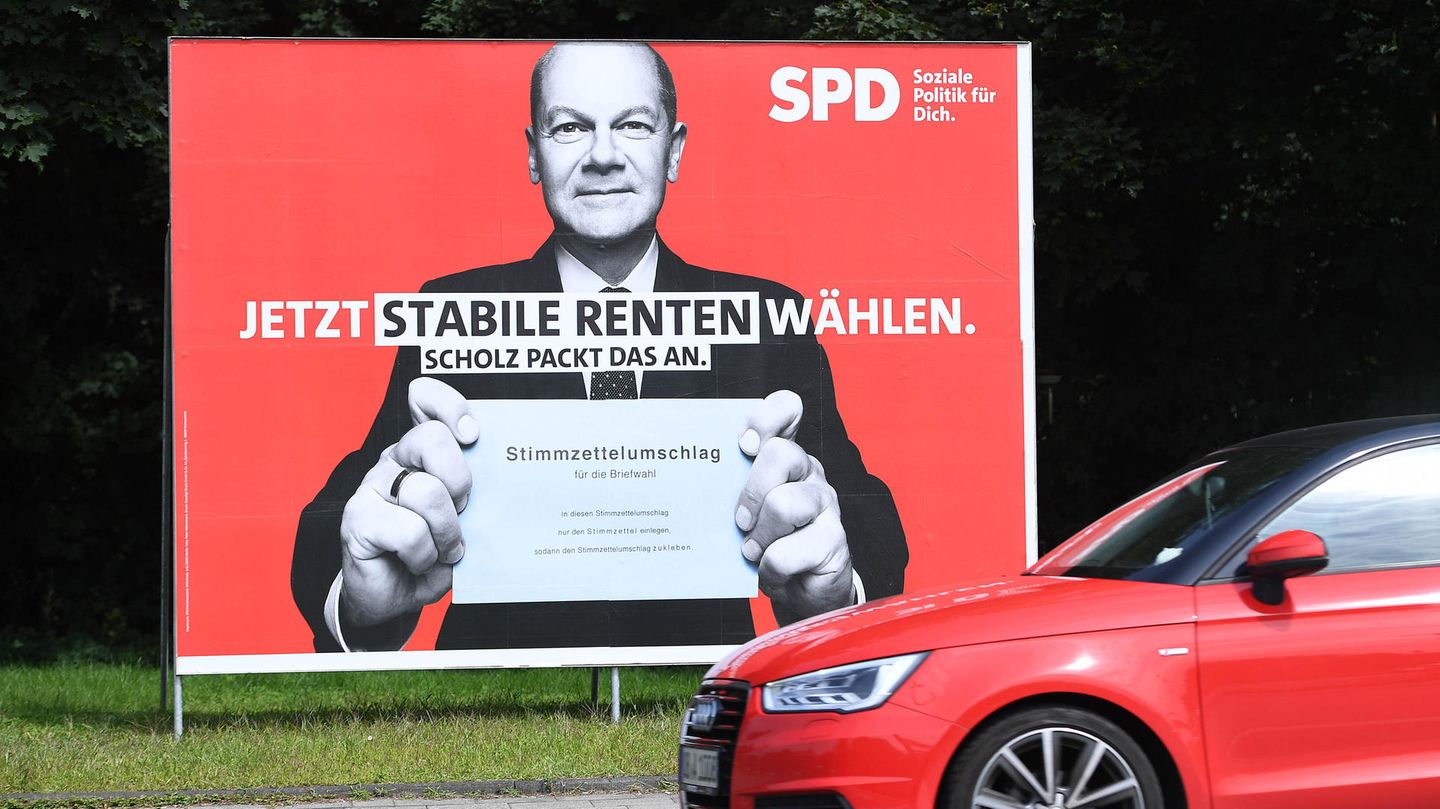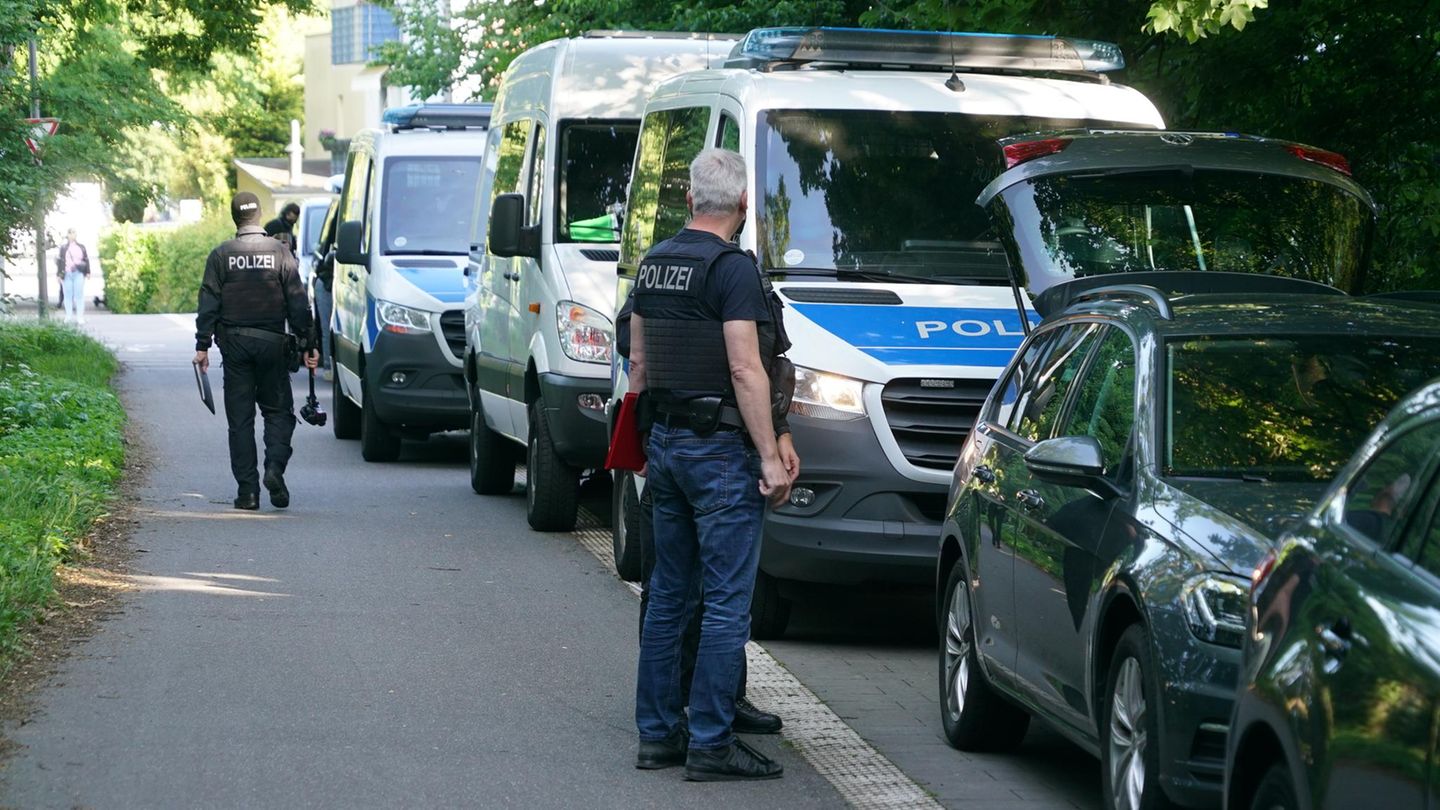Podcast
“Stable Interest Rates” are one of the great promises made by SPD Chancellor candidate Olaf Scholz. The publicist Ursula Weidenfeld is harshly on the court – but also with the empty content of the Union after 16 years Angela Merkel: This must as a party of power “stay in government so as not to fall apart”.
On the red posters with SPD chancellor candidate Olaf Scholz, concrete promises have been made for weeks: 12 euros minimum wage. Affordable housing. And: stable pensions. No higher retirement age, no lower pension level. “I believe he will pay dearly for this if he has to keep the promise”says the journalist Ursula Weidenfeld.
Of course, pensions should be stable for those who will retire in the years to come. But just putting more money into the system or integrating the self-employed and civil servants is one thing “very short-term cure”. Demographic change will strike from 2025, when millions of baby boomers will retire – pension insurance will come under great pressure.
The SPD candidate for chancellor is building on a central feature of the Angela Merkel era: not announcing any tough reforms or promising visions. “I don’t believe in the big success. At least we can’t call him that”, says Weidenfeld, who has just published a book about the Merkel era (“”). “It is quite obvious that in Germany with big throws or a 2030 Agenda you always frighten all voters more than you encourage them to look confidently into the future.”
Reforms only in the course of crisis management
Changes in Germany under Merkel only occurred in times of crisis: “If you know that the people don’t want reforms, then you do them in the course of crisis management”says Weidenfeld. One example is the Corona crisis: the Chancellor approved the European reconstruction fund, even though she had rejected community debts in the EU for years. According to Weidenfeld, Merkel knew exactly that she was “For every renewal, for every fundamental reorientation of politics, a momentum is needed, i.e. a situation in which that is accepted”.
In politically normal times, however, she does nothing. One of Merkel’s strengths was “to endure these phases of boredom and to make Germany a feel-good country”. The CDU is now feeling the consequences of this policy. This was not burned out. “But it has the problem that it is only a ruling party. It is no longer a conservative party, nor is it a substantive center party. It has become a party of power that has to stay in government in order not to fall apart.” You only have one message: “If you choose us, the country will be fine.”
Weidenfeld describes the phase between 2005 and 2021 as “happy time” for Germany, “a time of growing prosperity”, despite all crises. Economic output grew by almost a trillion euros, and numerous new social benefits were invented. Millions of jobs were created, and employment, especially among women, was expanded “half a revolution” may be. “It was a time when nobody in Germany really had to ask the question: What do I have to do differently in the future?” Nevertheless, so Weidenfeld, had “Germany’s economic strength has less to do with the reforms in its own country than with the weakness of others”. Low interest rates and the undervalued euro for Germany would have helped the German economy.
Listen in
- What Ursula Weidenfeld sees as the central successes and mistakes of Merkel
- What parallels there are between Angela Merkel and the Hassloch community in Rhineland-Palatinate
- Which Chancellor Weidenfeld would like to write her next book about
You can find all episodes directly at , or or via .
Jane Stock is a technology author, who has written for 24 Hours World. She writes about the latest in technology news and trends, and is always on the lookout for new and innovative ways to improve his audience’s experience.




